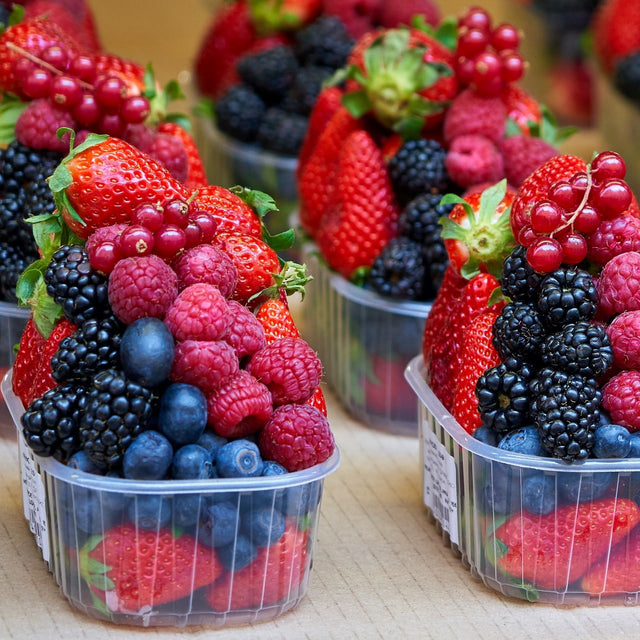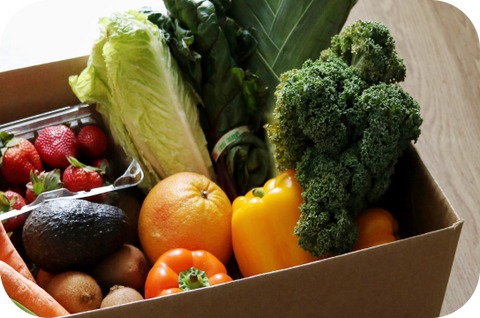

As the summer months quickly approach, we have been getting lots of berries for our Peko boxes. Let's learn more about them including the best ways to store and enjoy!

(Photo Source: Monika Grabkowska)
1. Strawberries
Strawberries are the crown jewel of summer berries. They're packed with vitamin C, antioxidants, folate (vitamin B9) and potassium. Strawberry varieties like Totem, Rainier, and Puget Reliance has their peak season from June to early July, whereas day neutral varieties, like Albion, are available until early September.
Storage: Don't wash strawberries until you're ready to use them. They will keep for a couple days in the refrigerator, ideally stored on a layer of paper towel in an air-tight container. You can also freeze them to use all winter long. If you're freezing strawberries, wash and let them dry completely, freeze them on a baking sheet for at least an hour and then place in bags.
Recipes: Eat strawberries fresh whole or cut them up for fruit salads. They also make great pies and jams.

(Photo Source: Joanna Kosinska)
2. Blueberries
Blueberries are high in fibre and nutrients, low in calories and rich in antioxidants, making it one of the best go-to snacks. Canada is the number one exporter of blueberries in the world and British Columbia is one of the largest highbush blueberry-growing regions in the world. However, be very cautious as blueberries have many look-a-likes that can be poisonous so be sure that what you're eating is safe! They can be bought fresh from the end of June to the beginning of October.
Storage: You shouldn't wash the blueberries until you are ready to use them, but you can remove the stems. Store them in their container for up to five days. You can also freeze blueberries but spreading them out and drying them on baking sheets, then freezing them on the baking sheets for an hour before transferring them to bags.
Recipes: Enjoy blueberries fresh, on their own, or in all kinds of baked goods (blueberry muffins), breakfast foods (blueberry pancakes) and desserts (blueberry pie). Blueberries also go great in beverages or in sauces.

(Photo Source: Anto Meneghini)
3. Raspberries
Raspberries contain a whopping eight grams of fibre per cup, are packed with antioxidants, and their irresistible flavour has earned them the nickname “nature’s candy.” Their peak season is from July to September.
Storage: Raspberries will stay good for two to three days in the refrigerator, but you should eat them as quickly as possible! Before storing them, remove any moldy or mushy ones, and store in their original container or on a paper towel-covered plate covered with plastic wrap.
Recipes: Raspberries are sweet and can be enjoyed fresh, whole and on their own. They also make great cakes and cake toppers.

(Photo Source: Yulia Khlebnikova)
4. Blackberries
Blackberries are high in fibre and packed with Vitamin C, ranging from super-sweet to very sour. It's one of the few welcomed invasive species that feeds not only humans but other species including worms, birds, rodents, deer and bears. This fruit is also one of the most picked and recognizable. Their peak season is June to September.
Storage: Blackberries will keep in the refrigerator for two to three days. Store them in the original container or on a paper towel-covered plate, covered in plastic wrap. Wash them just before eating.
Recipes: Eat sweeter blackberries on their own or as toppings for cereal, oatmeal or salads. Tarter blackberries make great jams, pies and muffins.
Sources
